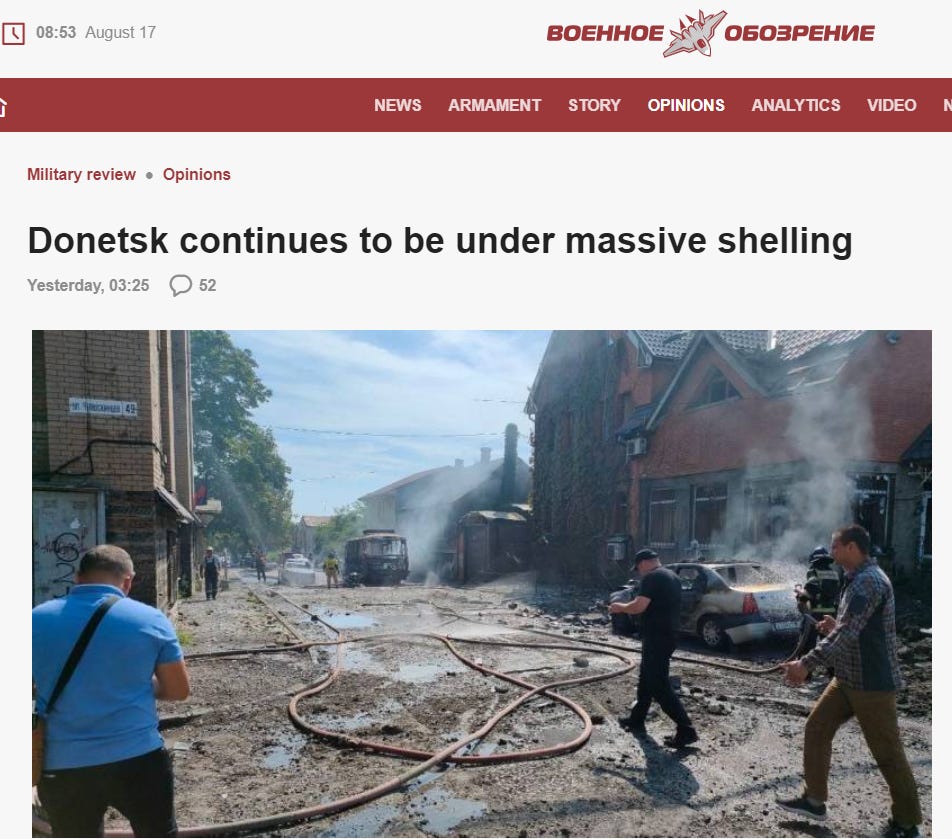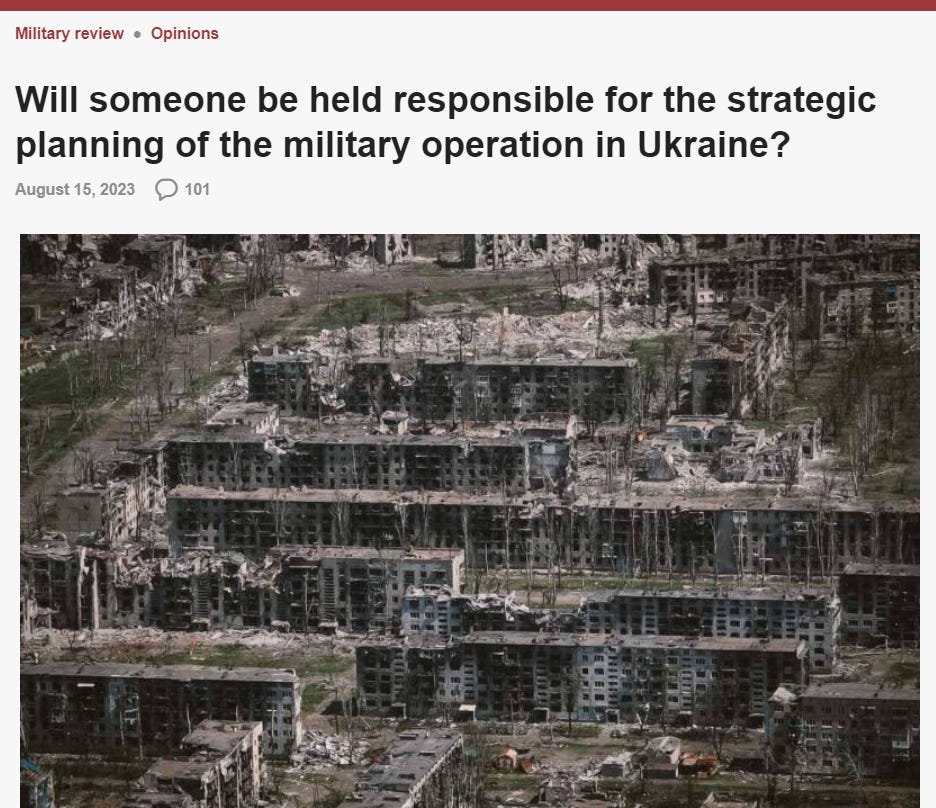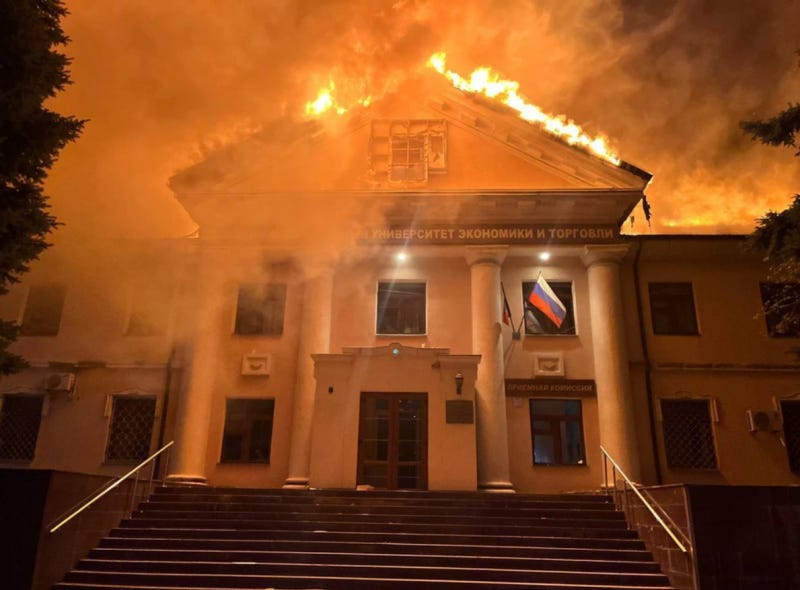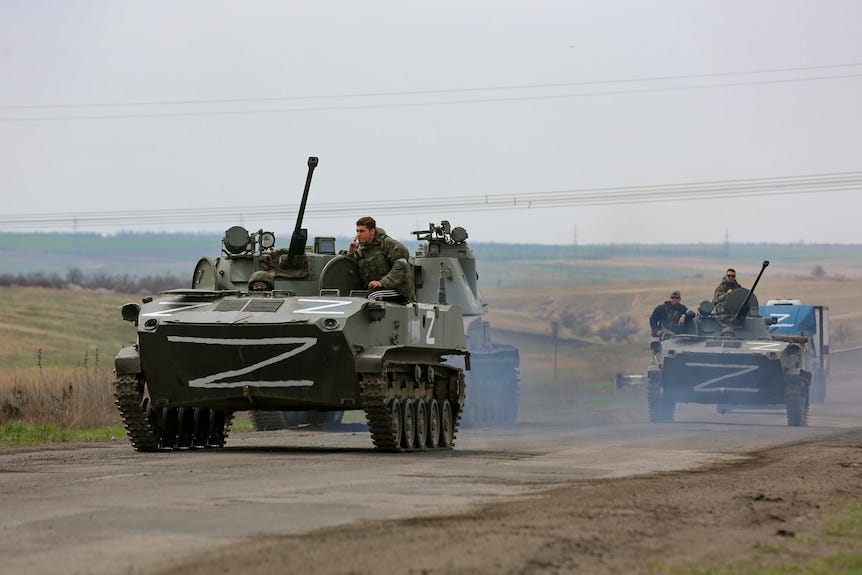Who is responsible for Russia's strategic planning in Ukraine?
Russia's most popular national security portal asks an important question
On April 9, 2022, Military Review—the most popular military and national security news portal in Russia—questioned Moscow’s commitment to fulfilling the stated goals of the “special military operation” in Ukraine:
Without a clear ultimate goal of the launched special operation and sufficient military forces, Russia still does not carry out the strategically important measures necessary in wartime: transferring the country’s economy to a military footing, mobilizing to replenish the army, cleaning power from representatives of the “fifth column”, fighting corruption. Everything is done reluctantly, insufficiently or not done at all.
Stop and consider that the above paragraph was published on Russia’s most popular military news site, which is edited by veterans and pro-military hardliners, on the 44th day of the SMO.
Here’s what the same outlet posted on April 28 (Day 63 of the SMO):
With the current available forces, it is impossible to liberate the entire Donbass, the entire Left Bank, and the Nikolaev and Odessa regions from the Nazis, creating a corridor with Transnistria. And the fight will not end there, if the Ukro-reich is not finished off, he will receive new military assistance, re-equip units and formations, mobilize new “cannon fodder” and go on the attack again. […]
We are almost a a year-and-a-half into this bizarre and tragic conflict, and Military Review has marked this unfortunate milestone by pointing out that everything the site warned about more than a year ago came to pass.

Lugansk-based Victor Biryukov wrote on August 16:
One of the officially declared goals of the special military operation was the protection of Donbass, which Russian politicians have repeatedly spoken about. It is clear that the real goals were somewhat different from those declared, and with the course of the military conflict they (goals) gradually transformed, nevertheless, statements were made repeatedly about the need to secure Donbass, and first of all Donetsk, moreover, promises were repeatedly made about that soon the shelling of the city will stop.
However, after a year and a half after the start of the SMO, the situation in Donetsk did not change for the better—on the contrary, the city began to be subjected to much more massive shelling than during the period of the Minsk agreements. […]
Many Donetsk residents expected that after the start of the military operation, the shelling of the city would finally stop, but this expectation turned out to be unfounded—after February 24, 2022, the shelling of the city only intensified. Moreover, cluster munitions are now periodically used during shelling.
Biryukov argues there are now only two ways to end the bloodshed: Moscow must either sign a peace agreement, or use WMDs. A rather shocking statement coming from a commentator in Lugansk. How did we arrive at such a dismal state of affairs?
A possible answer to this query is provided by Biryukov, who has some pointed things to say about Russia’s “strategic planning” in Ukraine.

Biryukov cites a remarkable observation made by a Russian national security think tank in 2015: Russia’s upper management has struggled to create a “decision-making system” based on objective information:
The book Strategic Forecasting and Planning of Foreign and Defense Policy, prepared by the staff of the Center for Military-Political Studies of MGIMO (Moscow State Institute of International Relations) in 2015, concluded that the ruling elite of Russia had not developed a clear and appropriate decision-making system—one that would not proceed from subjective data and selective information, personal relationships, etc., but instead would be based on a solid, objective and scientific foundation, and in which strategic forecasting and planning would occupy a worthy place.
It also pointed out that a mistake made in strategic forecasting and planning today could lead to radical negative consequences in the field of security and the national economy in 10, 20 and even 30 years. The effectiveness of military-political control directly affects not only the position of the nation in the world, but also its survival, sovereignty and preservation of national identity. Conversely, mismanagement leads to huge economic costs and even possible catastrophic consequences.
From the statements of Russian politicians, it becomes obvious that serious mistakes were made in the strategic planning of the military operation in Ukraine, and the assessment of the international political situation was incorrect.
The military planning of the operation had to take into account the impact of external realities and factors, in connection with which decisions had to be made that would minimize the risks. Work should have been carried out with other states, an appropriate information campaign should have been carried out. However, at the moment it seems obvious that such work has been neglected.
There are dozens of baffling decisions made by Moscow over the past two years that support this thesis. As Biryukov asks (I’m paraphrasing): How is it that Russia’s military planners did not anticipate—or even plan for—the possibility of NATO’s involvement in Ukraine? How is that even humanly possible?
There are many theories about what is motivating Moscow’s puzzling execution of the Not War. One possible explanation is that Russia is fighting a Not War that it doesn’t want to fight, as Putin basically admitted at the recent Russia-Africa summit in St. Petersburg. He told the delegates: “The draft of a [peace] treaty was agreed upon. But after the withdrawal of our troops from near Kiev—we were asked to do this in order to create conditions for the conclusion of a final treaty—the Kiev authorities abandoned all previous agreements.”
(Why Moscow agreed to a peace deal without some kind of insurance policy, only to get rugged, again, by its “dear Western partners”, certainly raises a number of questions about Russia’s “strategic planning”.)
Biryukov concludes:
With all this in mind, questions arise—who is responsible for Russian strategic planning? Why is the decision-making system ineffective? Why weren’t the people who planned the operation punished for their miscalculations and mistakes?
These questions are mostly rhetorical, but it should be noted that people who made mistakes, and have not been held accountable for them, can continue to make them in the future when drawing up future plans.
It’s a nasty cycle. How does this end?






I've always rather assumed that the objective was the situation in 1984 (the novel) with societies aware that "their side" is involved in a perpetual war which necessitates a permanent state of emergency and disquiet; makes travel difficult, which fluctuates in intensity for no apparent reason. The Ukraine seems the obvious place to create a no-man's-land dividing Mackinder's "island" into East and West.
Over $110bln of US aid to Ukraine, while 700$ of emergency aid per household is offered in Maui, Hawai. Think about it.
But at least Ukrainian homes are not getting destroyed by Ukrainian direct energy weapons, phew..Not that Zelensky & Co would have a high regard for its population, they simply don't have any energy weapons.